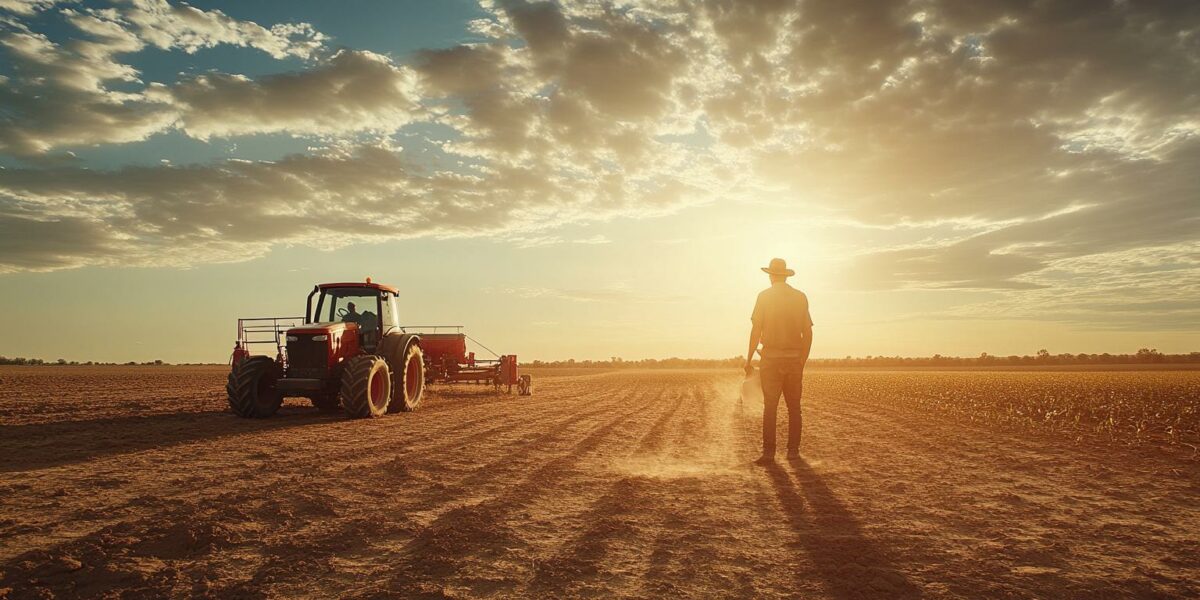The Unseen Battle Against Climate Change
In the heart of India’s parched lands, farmers are struggling with unpredictable weather that threatens their livelihoods. Once familiar rain patterns have become erratic, making it tough to plan sowing times. This shift has left thousands of acres of rice vulnerable, affecting both growth and yield.
Ravinder Reddy, a seasoned farmer, recalls a time when weather patterns were predictable. Now, he faces the challenge of adapting to climate change by experimenting with seeds engineered to withstand these conditions. Such seeds offer hope for better yields, even when water is limited.
India, a global giant in wheat and rice production, is witnessing a surge in research aimed at developing resilient seed varieties. As weather becomes more extreme, the demand for these innovations has grown, prompting a race against time to protect food security.
The urgency for these seeds is echoed in a United Nations report highlighting widespread hunger. The report emphasizes the need for reliable food sources in a world where over a third of people cannot access a healthy diet. Climate-resilient crops are being developed globally, including in Africa and Central America.
Adapting to a New Agricultural Reality
Indian farmers, often with small plots of land, are grappling with the impacts of climate change. Erratic rainfall, rising temperatures, and pest infestations threaten their livelihoods. To combat these challenges, some are turning to natural farming methods, but these often result in lower yields.
India’s government advocates for climate-resilient seeds to ensure stable production without sacrificing yield. Groundwater salinity, extreme weather, and temperature shifts all impact rice crops, necessitating innovative solutions.
Prominent agricultural scientist Ashok Kumar Singh highlights the necessity of these seeds to address global warming-induced challenges. His institute has released over 2,000 seed varieties designed to resist pests and diseases, thanks to government support.
Some of the key developments include:
- Release of 109 climate-resilient seeds this year
- Government plans to sow 25% of paddy fields with these seeds
- Efforts to distribute seeds widely and educate farmers
Ensuring Seeds Reach Every Farmer
The creation of climate-resilient seeds must be matched with efforts to make them accessible to farmers. Awareness, affordability, and training are crucial to their success, according to Aditi Mukherji, an expert in climate adaptation.
She draws parallels with India’s Green Revolution, which modernized agriculture in the 1960s. That success was due to the coordinated efforts of state and federal governments, ensuring farmers had access to necessary resources.
Today’s challenges demand a similar approach. While scientists are producing new seed varieties, the focus must shift to reaching every farmer, ensuring they have the tools and knowledge to harness these innovations.
This comprehensive strategy is essential for sustaining food security in a world where climate change is altering the very fabric of agriculture.
A Future Built on Resilient Seeds
India’s Prime Minister recently announced the release of a new batch of climate-resilient seeds, spanning various crops. The government’s aim is to have a significant portion of fields planted with these seeds in the coming season, ensuring a secure food future.
As the nation faces increasing climate challenges, the importance of these seeds cannot be overstated. They represent a lifeline for farmers, offering the possibility of stable yields amid growing environmental pressures.
While the science behind these seeds is advancing, the journey to widespread adoption continues. Efforts to educate and equip farmers with the necessary skills are underway, bridging the gap between innovation and implementation.
With a concerted effort from researchers, government bodies, and farmers, India is poised to navigate the complexities of climate change, ensuring a resilient agricultural landscape for generations to come.



Olive
Gr8 post! But why is this crisis just now being discussed? Feels like we should have acted sooner!
AdamVelocity
Why focus on engineered seeds instead of promoting more sustainable farming practices?
DylanTwilight
Seems like a lot of change for farmers to handle. Hope they’re getting the support they need! 😊
Ian3
Is the government doing enough to support farmers in adopting these new seed varieties?
penelope
I’m curious, how do these new seeds compare to traditional seeds in terms of taste and nutritional value?
NathanCascade
Can we trust these engineered seeds to be safe for the environment in the long run?
XavierEthereal2
Climate-resilient seeds sound like a great solution, but how affordable are they for small farmers?
Owen
Does this mean that traditional farming methods are becoming obsolete in India?
evelyngenesis
Wow, I had no idea that climate change was affecting seeds so much! Thanks for the insightful article. 🌱